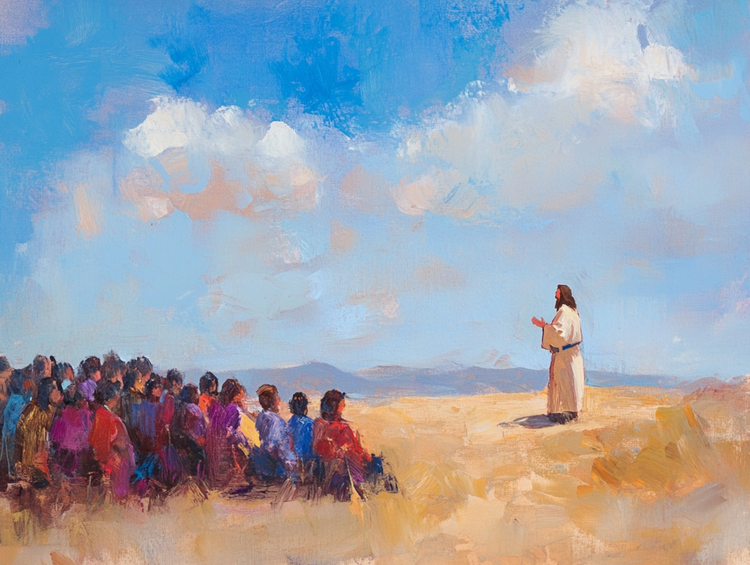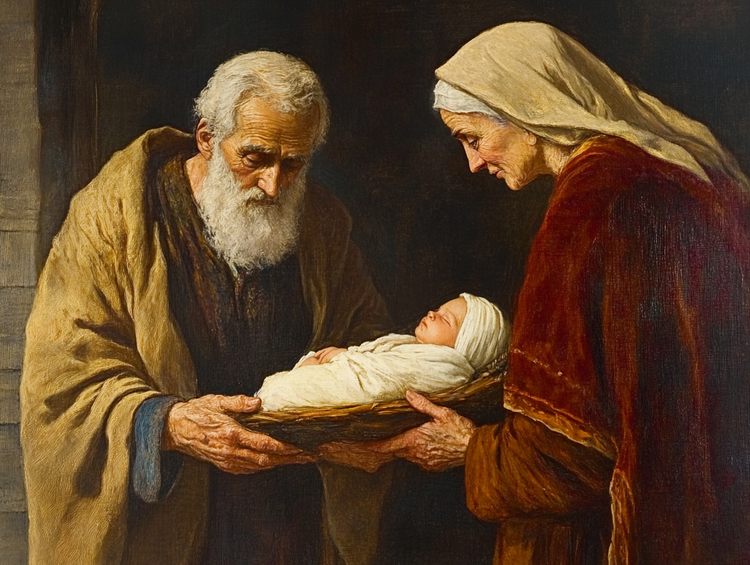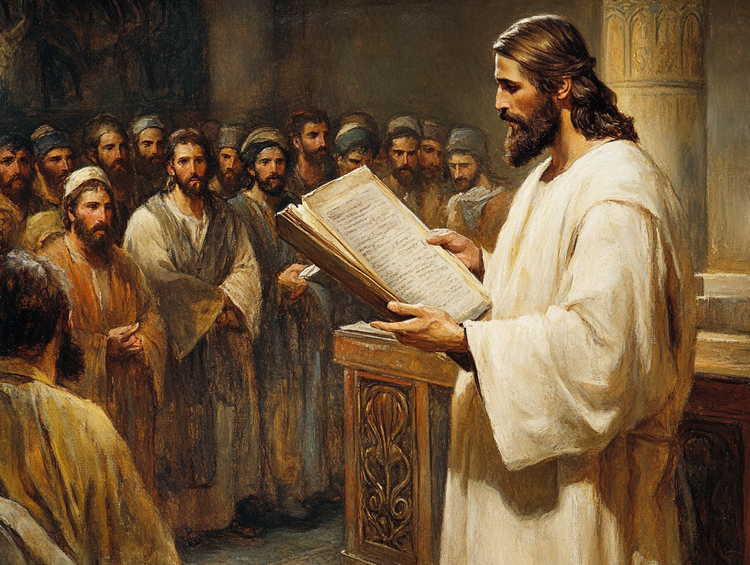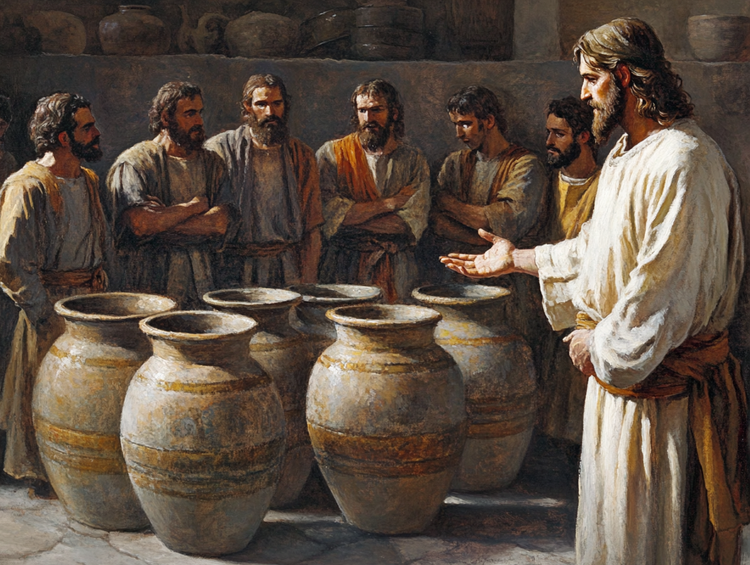The Feast of the Holy Family of Jesus, Mary, and Joseph – 29th December 2024 (Year C)

Quick Glance Summary
- Theme: God trusts in family.
- Key Message: The Holy Family teaches us that God’s call and God’s plan unfolds in family life, even in challenge, resistance, shortfall and setback.
- First Reading (1 Samuel 1:20-22, 24-28): Hannah dedicates Samuel, the son she prayed to receive, to God. She sticks to her promise, Her trust is inspirational.
- Responsorial Psalm (Psalm 84:2-3, 5-6, 9-10): A song of the desire to live life connected to God.
- Second Reading (1 John 3:1-2, 21-24): St John reflects on the profound love of God that makes us His children, calling us to respond with faith and love.
- Gospel (Luke 2:41-52): The boy Jesus in the Temple reveals his growing awareness of himself. Mary and Joseph feel the worry of every parent about what the future holds for the child they love. They are working things out as they go along. What trust in God this must have required!
The Gospel: Luke 2:41-52
The Feast of the Holy Family – 29th December 2024 (Year C)
Every year his parents went to Jerusalem for the Feast of the Passover. When he was twelve years old, they went up to the Feast, according to the custom. After the Feast was over, while his parents were returning home, the boy Jesus stayed behind in Jerusalem, but they were unaware of it. Thinking he was in their company, they travelled on for a day. Then they began looking for him among their relatives and friends. When they did not find him, they went back to Jerusalem to look for him. After three days they found him in the Temple courts, sitting among the teachers, listening to them and asking them questions. Everyone who heard him was amazed at his understanding and his answers.
When his parents saw him, they were astonished. His mother said to him, ‘Son, why have you treated us like this? Your father and I have been anxiously searching for you.’
‘Why were you searching for me?’ he asked. ‘Didn’t you know I had to be in my Father’s house?’ But they did not understand what he was saying to them.
Then he went down to Nazareth with them and was obedient to them. But his mother treasured all these things in her heart. And Jesus grew in wisdom and stature, and in favour with God and man.
Overview of the Gospel Passage
This Gospel recounts how Mary and Joseph, after a frantic search, find the young Jesus in the Temple. His profound engagement with the teachers reveals His divine wisdom and identity. Yet His humble return to Nazareth shows His obedience to His parents. The passage illustrates the tensions typical in the growing child and in the caring parents.
Connecting the Gospel to Today's Cultural Context
Life, especially family life, sometimes reduces us to bewilderment: either we don’t understand what is going on with our children; or, alternatively, we do not accept the worries of our parents for us because we do not see their point of view. The story of the Holy Family shows how even they had to pause and reflect. They remind us that we are not as independent as we might think: parents have to listen to their children; children have to listen to their parents. All have to seek to understand. Where do we turn in this seeking? Prayer can provide a most valuable space for expressing our worries and our puzzlement. It also provides a space for just being open to what we do not know or understand. It provides us with cause to encounter the God who made us, who loves us immensely, and to pray for patience, for wisdom and for understanding - enough to help us to take the next step forward with as much wisdom as possible for us.
Reflection Questions with Responses
- Who or what groups might find these readings especially helpful?
- Parents and guardians: Mary and Joseph’s worry and eventual joy resonate with those caring for children.
- Young people: Jesus' presence in the Temple shows him growing and learning through valuing and seeking wisdom as he listens to the elders.
- Those discerning their calling: Hannah and the Holy Family exemplify trust in God’s plan, even when it leads to sacrifice or uncertainty.
- Educators and mentors: The Temple teachers remind us of the responsibility to nurture faith and learning in others.
- What human weaknesses do they address, and what virtues do they aim to strengthen?
- Weaknesses: Anxiety, lack of trust in God, and impatience in the face of others’ actions.
- Virtues: Persistence (Mary and Joseph's search), obedience & trust (Jesus' return to Nazareth), and faith (Hannah's dedication of Samuel).
- What is the feeling tone of each reading?
- 1 Samuel: Fulfilment and thankfulness expressed for what God has given.
- Psalm 84: Yearning and serene, seeking the blessings of dwelling with God.
- 1 John: A sense of wonder, love and hope at being God's children.
- Gospel: Tense and then patient acceptance and trust. It moves from the parents’ worry, through amazement at Jesus, to a willingness to go with God’s plan.
- Which saints or well-known figures exemplify the message of each reading?
- St Monica: Her faith and persistence mirror Hannah's dedication.
- St John Bosco: His care for young people embodies the nurturing seen in Mary, Joseph, and the Temple teachers.
- St Thérèse of Lisieux: A childlike trust in God’s love, similar to the themes of 1 John.
- What works of art, poems, or pieces of music provide insight into the message?
- Art: “The Finding of the Saviour in the Temple” by William Holman Hunt.
- Music: Panis Angelicus by César Franck, reflecting the divine wisdom and humility of Christ.
- Poetry: The final verse of Christina Rossetti’s In the Bleak Midwinter offers a meditative response to God’s gifts. What can I give him? Give my heart.
- Where has the message of these readings been true in my life or those close to me, and is there a story I can share about that?
- Might we reflect on an episode of family conflict resolved through persistence, pausing, and patience, mirroring the example of Mary, Joseph, and Jesus in this story?
- Was there a time when a mentor or elder offered wisdom, guiding you or others steering you through an awkward moment, to a renewed willingness to try again, maybe bringing you closer to God and reliance on God?






Member discussion